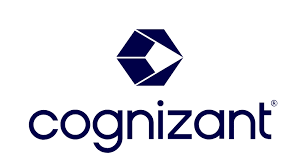Dr. Karan Gupta
Expert:Jenkins, GitOps, GitHub Actions, CI/CD Pipelines, Ansible, Chef, Puppet, Monitoring with Prometheus & Grafana








you have basic knowledge in a language like Python, Java, or Bash and wish to learn how to work with DevOps tools and practices? Are you interested in mastering CI/CD pipelines, automation, cloud computing, containerization, and infrastructure as code? If so, this is the perfect course for you. There's no need to look further. Learn more about our DevOps course here..
In the Academy or online
Lots of practice and immediately applicable knowledge for your projects
Certificate for active participation
Small groups with max. 8 participants
Your trainers are experts with years of teaching and industry experience
Comprehensive learning materials
Compact, lively, and sustainable
The course covers a selection of the following topics:
The basic DevOps course is designed for participants with a fundamental understanding of programming and IT concepts. Therefore, you should already be familiar with concepts like scripting, version control, and basic networking. However, prior experience with DevOps tools is not required. If you have worked with programming languages like Python, Java, or Bash, you have all the prerequisites for this course. Even if you have some exposure to DevOps but lack confidence in implementing CI/CD pipelines, automation, or cloud deployment, this course is the perfect fit for you.
This basic DevOps course teaches you DevOps principles and practices in a simple and structured way. Unlike our other introductory courses that require no prior knowledge, the DevOps basic course is aimed at participants who already have foundational knowledge in programming or IT operations and those who have had some initial experience with DevOps but want to build a solid foundation.
You will learn how DevOps works, how to use essential tools, and how to implement automation in software development and deployment. We cover key concepts like version control, CI/CD pipelines, infrastructure as code, and configuration management. You will gain hands-on experience with tools like Git, Docker, Kubernetes, and Jenkins. We also discuss cloud platforms, container orchestration, and monitoring to help you build and manage scalable applications efficiently.
Of course, as a participant in the DevOps course for beginners and programmers, you will receive a professional certificate. The prerequisite for this is full participation in all course units and programming tasks.
The Devops course for beginners and programmers is conducted by one of the following trainers: